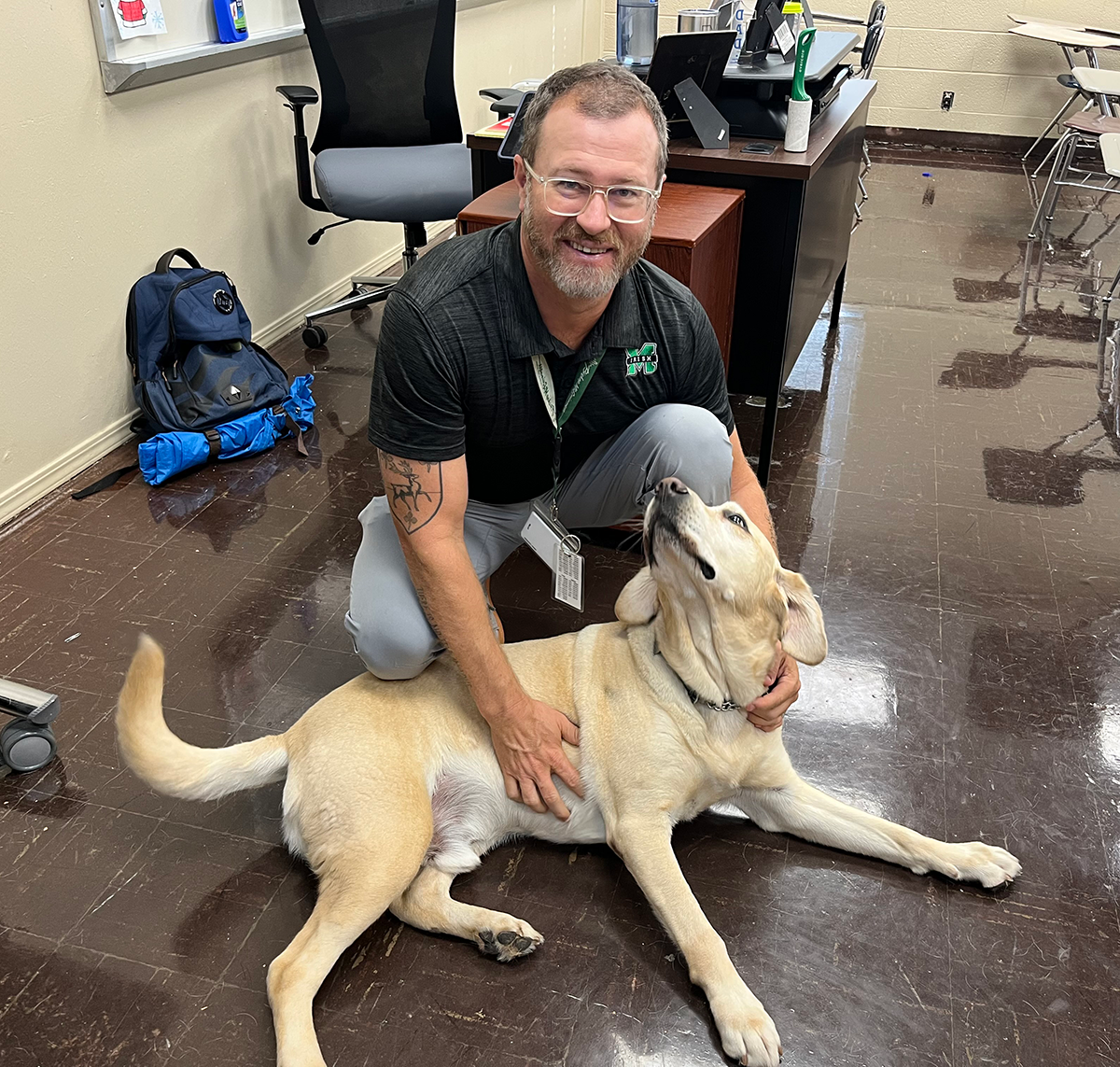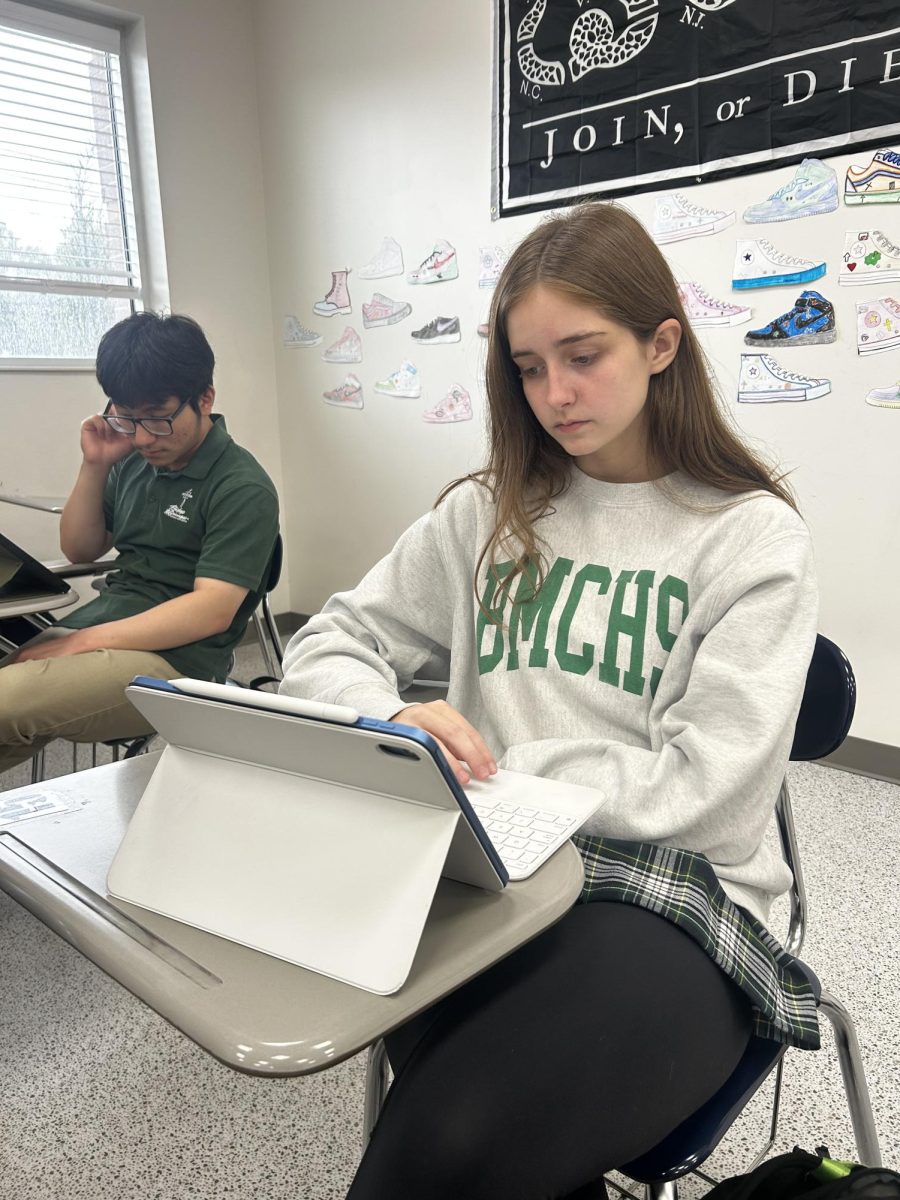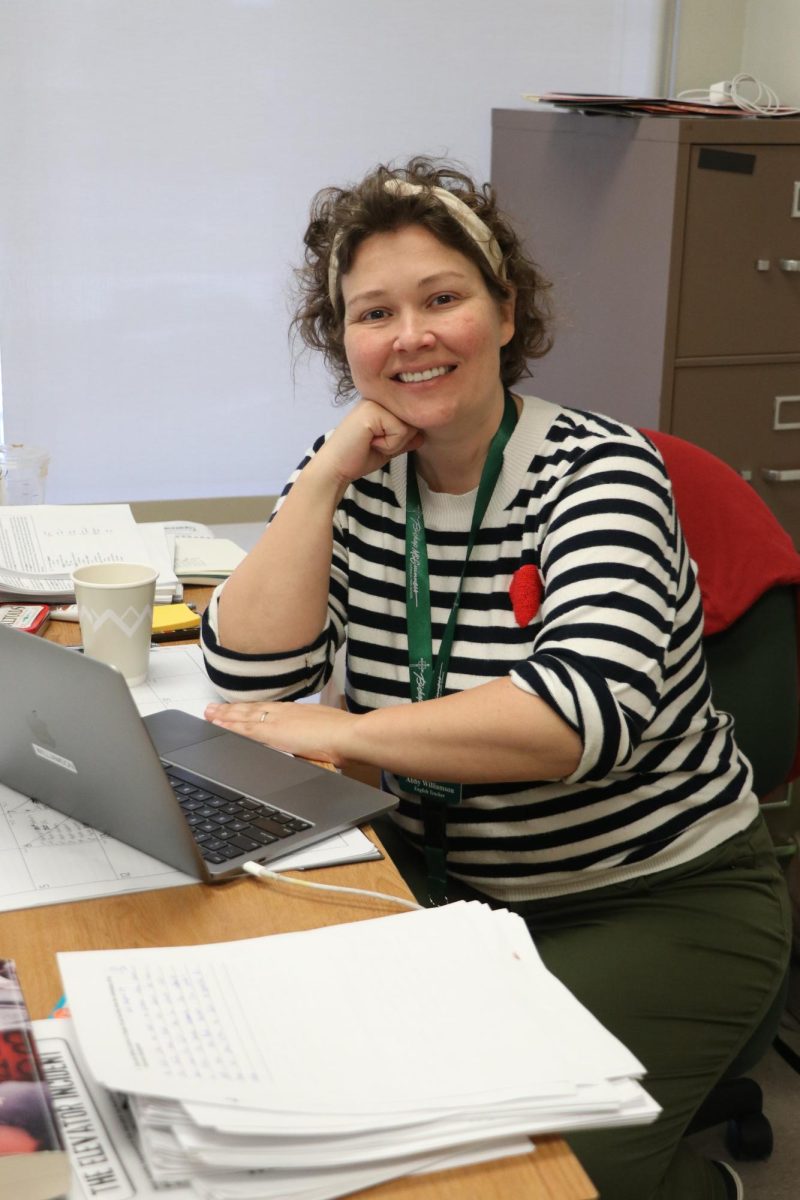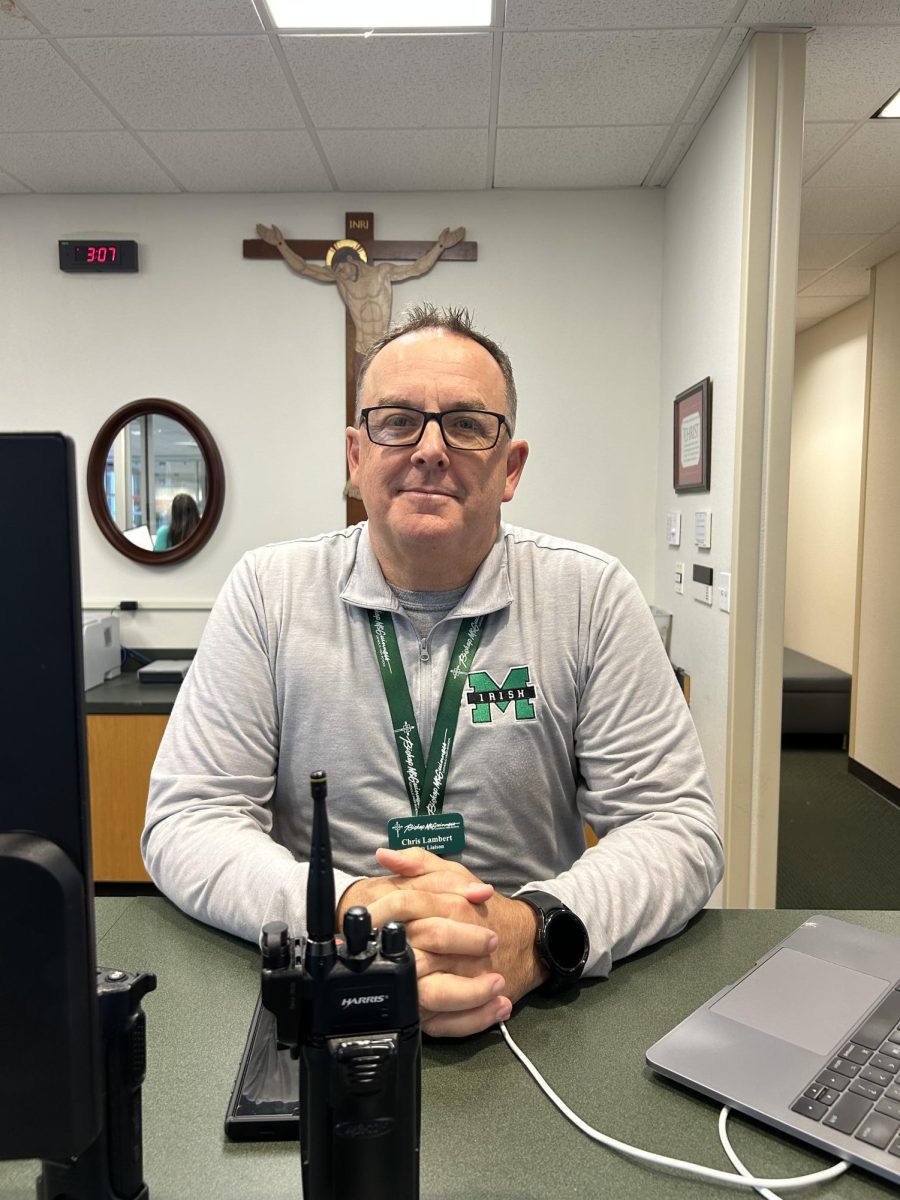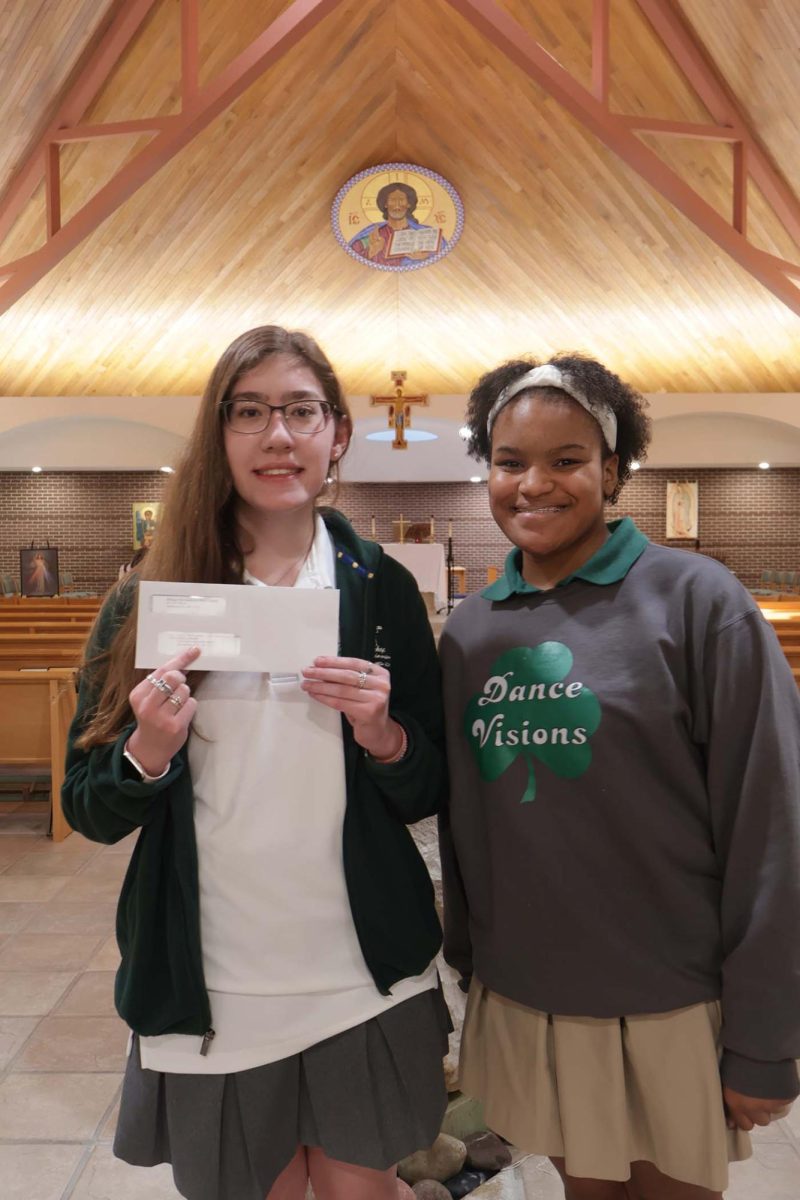REACH teacher Peter McConnell continues to persevere even while challenged with an eye disease with the help of his dog Elroy.
McConnell has a long history with Bishop McGuinness, coming from a family heavily involved with the school.
“My dad was a teacher here for 48 years, and my grandma taught here in the 70s and 80s,” McConnell said.
He graduated from McGuinness in 1994 where he has been teaching for 18 years.
“This is the second year I’ve been in REACH and the first 16 I taught theology,” McConnell said.
McConnell lives with a rare genetic eye disease called Choroideremia (CHM), which only affects men. According to the National Library of Medicine “symptoms in affected males evolve from night blindness to peripheral visual field loss, with central vision preserved until late in life.”
“Right now I have no peripheral vision, and no night vision. I have some central vision left. Kind of like a pencil,” McConnell said. “The further away from things I am, the more I can see. If I get up close to people, I can’t see them very well.”
McConnell says his biggest struggle is traffic, as he walks one mile to school every morning, which is where his guide dog Elroy is a big help.
“He’s the one you know, who really keeps me out of harm’s way,” McConnell said. “I think we’ve run out of or avoided at least five cars that could have hit me in the last five years.”
McConnell got Elroy through a school called Guiding Eyes for the Blind, which connects people who live with eye disease to guide dogs to help them live more independently. The school provides trained service dogs to people with vision loss completely free of charge.
“All you have to do is apply and they send somebody down to meet with you,” McConnell said. “They walk with you to kind of see how you know you walk and what a good fit with you would be and then they admit you.”
Once admitted to the program, he stayed in New York for two weeks to train with Elroy.
“If they had to put a stamp on him, each dog is worth about $50,000 when you walk out of the school with them because of all the training,” McConnell said.
As a teacher, he requires things to be a bit different in his classroom.
“It requires a lot more honesty from myself and from the people I’m working with,” McConnell said. “We spent a legit two days at the beginning of every year with my students kind of going through what I had, and how I see and what my limitations are.”
McConnell says that having patience and honesty within his classroom helps to develop the relationship between him and his students.
At age 40 McConnell underwent a clinical trial to cure his eyes along with 12 others in the United States. The trial was unsuccessful, but was a big step in the right direction to potentially finding a cure for the disease.
“There’s a foundation out there for my eye disease. It is called curechm.org,” McConnell said. “I donate, and help fundraise for them.”
For more information about CHM you can visit curechm.org.


